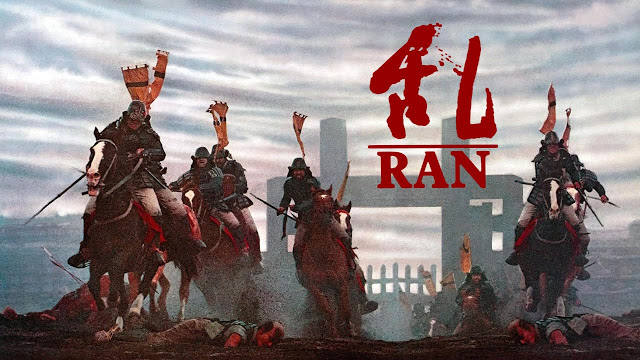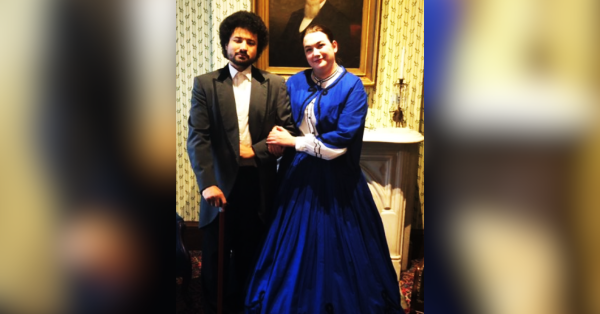Shakespeare and Japanese Folklore blend in ‘Ran’
Movie from legendary Akira Kurosawa screened at UIS
The UIS Office of Student Life invited students and faculty look through “a lens of feudal Japan” with a screening of the film Ran.
The 1985 film is an adaptation of Shakespeare’s King Lear set in feudal Japan, specifically an era known as the Warring States period where the country was divided into dozens of competing provinces. A piece of Japanese folklore also inspires it, the legend of Mori Motonari, who was a feudal lord known for his political diplomacy during the turbulent era.
Ran follows the Great Lord Hidetora Ichimonji who decides to divide his land among his three sons. His oldest two sons each try to stage a coup against their father and become warlord.
The film was directed by Akira Kurosawa, an influential Japanese film director and screenwriter in the history of Western cinema.
Peter Shapinsky, a UIS associate professor in history who studies medieval Japanese piracy, held a discussion after the screening on the film’s main themes.
“Kurosawa in his many films across the 20 century makes powerful artistic statements about the tensions set in Japan in that period between society and the individual,” he noted. “He asks questions about what is the price of militarism. He asked questions about what is human nature. Ran deals with all these themes.”
At the end of the film an open discussion was held by Shapinsky, where he asked questions concerning the film to attendees. All attendees could answer and discuss between one another with the starter questions that Shapinsky provided. In addition to the open discussion, attendees were also allowed to ask questions about the film and any cultural or implied symbolism that wouldn’t have been understood having grown up in a western based society.
One audience member, whose mother is from Japan, pointed out that people need to interpret the film with Japanese social norms of inheritance distribution.
“In Japan, it is casual that the oldest son inherits everything of the family, and other sons have to figure out how to get their own castle,” she said. “Also, in the film, the society is based on duty, instead of what they hope, although we could never understand how those guys made their politic decisions.”
The screening was part of The NPR Illinois Foreign & Independent Film Series, which is sponsored by the Office of Student Life.













